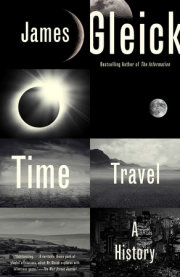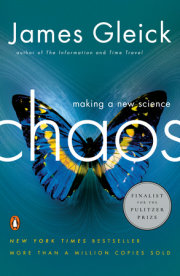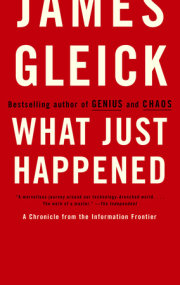Chapter 1
What Imployment Is He Fit For?Medieval, in some disrepair, the Woolsthorpe farmhouse nestled into a hill near the River Witham. With its short front door and shuttered windows, its working kitchen, and its bare floors of ash and linden laid on reeds, it had belonged to Newton's forebears for just twenty years. In back stood apple trees. Sheep grazed for acres around.
Isaac was born in a small room at the top of the stairs. By the terms of feudal law this house was a manor and the fatherless boy was its lord, with seigniorial authority over a handful of tenant farmers in nearby cottages. He could not trace his ancestry back past his grandfather, Robert, who lay buried in the churchyard nearly a mile to the east. Still, the boy expected to live managing the farm in the place of the father he had never known. His mother, Hannah Ayscough, had come from gentlefolk. Her brother, the Reverend William Ayscough, studied at Cambridge University on his way to joining the Anglican clergy; now he occupied a village rectory two miles away. When Isaac was three years old and his widowed mother near thirty, she accepted a marriage offer from another nearby rector, Barnabas Smith, a wealthy man twice her age. Smith wanted a wife, not a stepson; under the negotiated terms of their marriage Hannah abandoned Isaac in the Woolsthorpe house, leaving him to his grandmother's care.
War flared in the countryside all through his youth. The decade-long Great Rebellion began in the year of his birth: Parliamentarians fighting Royalists, Puritans recoiling from the idolatry they saw in the Church of England. Motley, mercenary armies skirmished throughout the Midlands. Pikemen and musketeers sometimes passed through the fields near Woolsthorpe. Bands of men plundered farms for supplies. England was at war with itself and also, increasingly, aware of itself-its nationhood, its specialness. Divided as it was, convulsed over ecclesiastical forms and beliefs, the nation carried out a true revolution. The triumphant Puritans rejected absolutism and denied the divine right of the monarchy. In 1649, soon after Isaac turned six, Charles Stuart, the king, was beheaded at the wall of his palace.
This rustic country covered a thousandth of the world's landmass, cut off from the main continent since the warming of the planet and the melting of polar ice 13,000 years before. Plundering, waterborne tribes had settled on its coasts in waves and diffused into its downs and valleys, where they aggregated in villages. What they knew or believed about nature depended in part on the uses of technology. They had learned to employ the power of water and wind to crush, grind, and polish. The furnace, the forge, and the mill had taken their place in an economy that thereby grew more specialized and hierarchical. People in England, as in many human communities, made metal-kettles of copper and brass, rods and nails of iron. They made glass. These crafts and materials were prerequisites now to a great leap in knowledge. Other prerequisites were lenses, paper and ink, mechanical clocks, numeric systems capable of denoting indefinitely small fractions, and postal services spanning hundreds of miles.
By the time of Newton's birth, one great city had formed, with about 400,000 people; no other town was even a tenth as large. England was still a country of villages and farms, its seasons ordered by the Christian calendar and the rhythms of agriculture: lambing and calving, haymaking and harvest. Years of harvest failure had brought widespread starvation. Roving laborers and vagrants made up much of the population. But a class of artisans and merchants was coming into its own: traders, shopkeepers, apothecaries, glaziers, carpenters, and surveyors, all developing a practical, mechanical view of knowledge. They used numbers and made tools. The nucleus of a manufacturing economy was taking shape.
When Isaac was old enough, he walked to the village dame school, where he learned to read and studied the Bible and chanted arithmetic tables. He was small for his age, lonely and abandoned. Sometimes he wished his stepfather dead, and his mother, too: in a rage he threatened to burn their house down over them. Sometimes he wished himself dead and knew the wish for a sin. On bright days sunlight crept along the wall. Darkness as well as light seemed to fall from the window- or was it from the eye? No one knew. The sun projected slant edges, a dynamic echo of the window frame in light and shadow, sometimes sharp and sometimes blurred, expressing a three-dimensional geometry of intersecting planes. The particulars were hard to visualize, though the sun was the most regular of heavenly objects, the one whose cycles already defined the measures of time. Isaac scratched crude geometric figures, circles with arcs inscribed, and hammered wooden pegs into the walls and the ground to measure time exactly, to the nearest quarter-hour. He cut sun-dials into stone and charted the shadows cast by their gnomons. This meant seeing time as akin to space, duration as length, the length of an arc. He measured small distances with strings and made a translation between inches and minutes of an hour. He had to revise this translation methodically as the seasons changed. Across the day the sun rose and fell; across the year its position in the sky shifted slightly against the fixed stars and traced a slowly twisting figure eight, a figure invisible except to the mind's eye. Isaac grew conscious of this pattern long before he understood it as the product of two oddities, the earth's elliptical orbit and a tilt in its axis.
At Woolsthorpe anyone who cared to know the hour consulted Isaac's dials. "O God! Methinks it were a happy life," said Shakespeare's Henry VI, "to carve out dials quaintly, point by point, thereby to see the minutes how they run." Sun-dials-shadow-clocks-still told most people the time, though at some churches the hour could be read from mechanical clocks. At night the stars turned in the blue vault of the sky; the moon waxed and waned and traced its own path, much like the sun's, yet not exactly-these great globes, ruling the seasons, lighting the day and night, connected as if by invisible cords. Sun-dials embodied practical knowledge that had been refined over millennia. With cruder sun-dials, the hours were unequal and varied with the seasons. Better versions achieved precision and encouraged an altered sense of time itself: not just as a recurring cycle, or a mystical quality influencing events, but as duration, measurable, a dimension. Still, no one could perfect or even understand sun-dials until all the shifting pieces of a puzzle had been assembled: the shadows, the rhythms, the orbits of planets, the special geometry of the ellipse, the attraction of matter by matter. It was all one problem.
When Isaac was ten, in 1653, Barnabas Smith died, and Hannah returned to Woolsthorpe, bringing three new children with her. She sent Isaac off to school, eight miles up the Great North Road, to Grantham, a market town of a few hundred families-now a garrison town, too. Grantham had two inns, a church, a guild hall, an apothecary, and two mills for grinding corn and malt. Eight miles was too far to walk each day; Isaac boarded with the apothecary, William Clarke, on High Street. The boy slept in the garret and left signs of his presence, carving his name into the boards and drawing in charcoal on the walls: birds and beasts, men and ships, and pure abstract circles and triangles.
At the Kings School, one room, with strict Puritan discipline, Henry Stokes, schoolmaster, taught eighty boys Latin, theology, and some Greek and Hebrew. In most English schools that would have been all, but Stokes added some practical arithmetic for his prospective farmers: mostly about measurement of areas and shapes, algorithms for surveying, marking fields by the chain, calculating acres (though the acre still varied from one county to the next, or according to the land's richness). He offered a bit more than a farmer would need: how to inscribe regular polygons in a circle and compute the length of each side, as Archimedes had done to estimate pi. Isaac scratched Archimedes' diagrams in the wall. He entered the lowest form at the age of twelve, lonely, anxious, and competitive. He fought with other boys in the churchyard; sometimes noses were bloodied. He filled a Latin exercise book with unselfconscious phrases, some copied, others invented, a grim stream of thought:
A little fellow; My poore help; Hee is paile; There is no room for me to sit; In the top of the house-In the bottom of hell; What imployment is he fit for? What is hee good for? He despaired. I will make an end. I cannot but weepe. I know not what to doe.Barely sixty lifetimes had passed since people began to record knowledge as symbols on stone or parchment. England's first paper mill opened at the end of the sixteenth century, on the Deptford River. Paper was prized, and the written word played a small part in daily life. Most of what people thought remained unrecorded; most of what they recorded was hidden or lost. Yet to some it seemed a time of information surfeit. "I hear new news every day," wrote the vicar Robert Burton, attuned as he was-virtually living in the Bodleian Library at Oxford-to the transmission and storage of data:
those ordinary rumours of war, plagues, fires, inundations, thefts, murders, massacres, meteors, comets, spectrums, prodigies, apparitions, . . . and such like, which these tempestuous times afford. . . . New books every day, pamphlets, currantoes, stories, whole catalogues of volumes of all sorts, new paradoxes, opinions, schisms, heresies, controversies in philosophy, religion &c."
Burton was attempting to assemble all previous knowledge into a single rambling, discursive, encyclopedic book of his own. He made no apology for his resolute plagiarism; or, rather, he apologized this way: "A dwarf standing on the shoulders of a Giant may see farther than a Giant himself." He tried to make sense of rare volumes from abroad, which proposed fantastic and contradictory schemes of the universe-from Tycho, Galileo, Kepler, and Copernicus. He tried to reconcile them with ancient wisdom.
Did the earth move? Copernicus had revived that notion, "not as a truth, but a supposition." Several others agreed. "For if the Earth be the Center of the World, stand still, as most received opinion is," and the celestial spheres revolve around it, then the heavens must move with implausible speed. This followed from measurements of the distance of sun and stars. Burton borrowed (and mangled) some arithmetic. "A man could not ride so much ground, going 40 miles a day, in 2,904 years, as the Firmament goes in 24 hours; or so much in 203 years, as the said Firmament in one minute; which seems incredible." People were looking at the stars through spyglasses; Burton himself had seen Jupiter through a glass eight feet long and agreed with Galileo that this wanderer had its own moons.
He was forced to consider issues of shifting viewpoint, though there was no ready language for expressing such conundrums: "If a man's eye were in the Firmament, he should not at all discern that great annual motion of the earth, but it would still appear an indivisible point." If a man's eye could be so far away, why not a man? Imaginations ran free. "If the earth move, it is a Planet, & shines to them in the Moon, & to the other Planetary Inhabitants, as the Moon and they to us upon the earth."
We may likewise insert . . . there be infinite Worlds, and infinite earths or systems, in infinite æther, . . . and so, by consequence, there are infinite habitable worlds: what hinders? . . . It is a difficult knot to untie.
Especially difficult because so many different authorities threw forth so many hypotheses: our modern divines, those heathen philosophers, heretics, schismatics, the Church of Rome. "Our latter Mathematicians have rolled all the stones that may be stirred: and . . . fabricated new systems of the World, out of their own Daedalean heads." Many races of men have studied the face of the sky throughout history, Burton said, and now the day was coming when God would reveal its hidden mysteries. Tempestuous times, indeed.
But
new books every day did not find their way to rural Lincolnshire. Newton's stepfather, Smith, had owned books, on Christian subjects. The apothecary Clarke also owned books. Smith even possessed blank paper, in a large commonplace book that he had kept for forty years. He painstakingly numbered the pages, inscribed theological headings atop the first few, and otherwise left it almost entirely empty. Some time after his death this trove of paper came into Isaac's possession. Before that in Grantham with two and a half pence his mother had given him, Isaac was able to buy a tiny notebook, sewn sheets bound in vellum. He asserted his ownership with an inscription:
Isacus Newton hunc librum possidet. Over many months he filled the pages with meticulous script, the letters and numerals often less than one-sixteenth of an inch high. He began at both ends and worked toward the middle. Mainly he copied a book of secrets and magic printed in London several years earlier: John Bate's
Mysteryes of Nature and Art, a scrap book, rambling and yet encyclopedic in its intent.
He copied instructions on drawing. "Let the thing which you intend to draw stand before you, so the light be not hindered from falling upon it." "If you express the sunn make it riseing or setting behind some hill; but never express the moon or starrs but up on necessity." He copied recipes for making colors and inks and salves and powders and waters. "A sea colour. Take privet berries when the sun entreth into Libra, about the 13th of September, dry them in the sunn; then bruise them & steep them." Colors fascinated him. He catalogued several dozen, finely and pragmatically distinguished: purple, crimson, green, another green, a light green, russet, a brown blue, "colours for naked pictures," "colours for dead corpes," charcoal black and seacoal black. He copied techniques for melting metal (in a shell), catching birds ("set black wine for them to drink where they come"), engraving on a flint, making pearls of chalk.
Copyright © 2003 by James Gleick. All rights reserved. No part of this excerpt may be reproduced or reprinted without permission in writing from the publisher.












